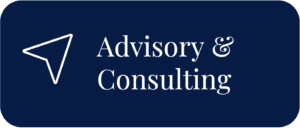So you have some candidates for an open position to interview? Great, but if you want to save some money and time, why not just flip a coin instead? It may sound trite, but the standard 30-minute interview gives you little more than a 50/50 chance of picking the right candidate for the role. Disheartening, isn’t it?
While where at it, let’s get all the bad news out of the way. In Australia, the cost of making a bad hire for non-executive positions ranges between 30% and 150% of their annual salary. Ouch. In these COVID days, when executives are looking at the procurement department harder than ever to find cost-saving opportunities, that’s a blunder you simply cannot afford to make.
Before you start searching through your pockets for some change, though, let me be clear: I’m not for a moment suggesting we do away with interviews; I’m saying we need to start interviewing more effectively. In other words, we need to start assessing skills relevant to the position. Sounds obvious, right? The trick, however, is knowing how to do it.
Make a Skills Gap Analysis part of your recruitment process
‘What are your weaknesses?’
‘Have you ever found yourself in a position where you’ve needed to improvise?’
‘How will you complement this team?’
You’ve probably asked these questions hundreds of times when interviewing for positions within the procurement team. So has the person running recruitment at the local animal shelter. My point is, if these questions are common to all interviews regardless of the position or industry, how do they help you determine a candidate’s suitability to your particular opening?
Don Moore from Haas School of Business suggests evaluating candidates on specific skills they’ll need to use in the job. It sounds utterly sensible, but the problem is that assessing somebody is a skill in itself; just because you work in the industry or even once held the job you’re hiring for, it doesn’t mean you have the ability to properly assess the relevant skills.
Skills gap assessments are best performed by those whose job revolves around these assessments. The people at Skills Gap Analysis do nothing but assess skills in the procurement arena. 20,000 assessments have been completed across the entire globe. In addition, mature capability benchmarks exist in Australia, UK, America, New Zealand, Middle East and Asia, covering skills, competencies and capabilities across the strategic procurement lifecycle.
Because we operate on the international stage, our clients not only discover if candidates meet their organisation’s criteria, but how they stack up against the industry. In other words, you can benchmark any prospective employees.
What are the benefits of a skills gap analysis in the recruitment process?
Removes biases
We’re often our own worst enemy. It’s well known that managers tend to hire those who remind them of themselves. If the candidate shares hobbies, experiences or tastes with the interviewer, they’re far more likely to be hired. Not only is this dubious criteria useless at targeting those skilled in the relevant areas, it also reduces diversity within the workplace – gender-wise and racially.
Nothing protects us from our own biases quite like a coldly objective skills gap analysis.
Takes context into account
How a candidate performed in previous roles is useful information – to a point. Too often, managers forget to take into account context. How much support did they have where they previously worked? What obstacles were they faced with? How difficult were the stakeholders? The results they achieved might look good on paper, but that doesn’t tell you how easy that job was. Similarly, somebody with poorer results may have faced sterner tasks and, within context, actually performed quite well.
A skills gap analysis will get to the bottom of the issue, uncovering what a candidate’s true skill level is on a level playing field.
The right candidates prefer it
Imagine this (perhaps you don’t have to): You’ve held several smaller roles in procurement departments in the early stages of your career and developed a solid skill base by observing closely and putting your hand up for a variety of tasks. A new position opens up in a company you’ve heard good things about. It’s a step up but you know you’re ready, so you apply. You arrive for the interview, ready to show off your hard-won abilities, and get asked:
‘What are your biggest weaknesses?’
All you want to do is display your skills that are appropriate to the job at hand, and instead you’re faced with a litany of trite questions – the sort of questions the wrong candidates love because they take the focus away from measurable, concrete skills and allows them to bullshit on about generic things like being a team player and working too hard.
A skills gap analysis allows the right candidates to show off what they worked hard to attain – and what’s actually relevant to the job.
Get your candidates screen by Skills Gap Analysis professionals
The traditional interview process has its place in today’s hiring environment – if it’s complemented with a sound skills gap analysis. Our assessments have been honed over many years to target specific skills in the procurement arena, allowing you to see the true worth of a candidate.
Now is the time to take advantage of our experience. We’re offering the first 10 recruitment benchmark reports we do for you at $200, which is nearly $400 less than the normal price. Talk to us today about how we can improve the success rate of your recruiting and stop losing the equivalent of an annual salary on a coin toss.








